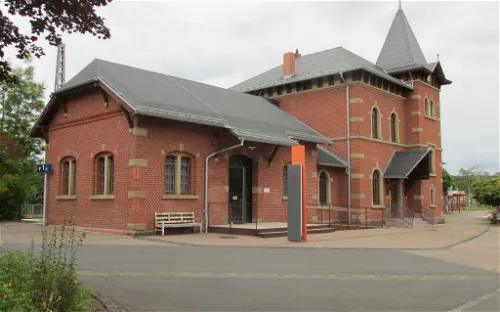Museum Friedland and its collection
The Museum Friedland, situated in Friedland in Lower Saxony, Germany, is dedicated to researching, preserving, presenting, and communicating the history of the Friedland border transit camp. This camp has been operational since 1945 and has seen the passage of over four million people, including refugees, displaced persons, released prisoners of war, late resettlers, and asylum seekers from various parts of the world.
Location and Facilities
The Museum Friedland is housed in the historic Friedland railway station building, which played a significant role in connecting to the border transit camp. The building, which has been completely renovated and modernized, offers 350 m² of exhibition space. The former luggage hall of the station now serves as the foyer.
Permanent Exhibition: Fluchtpunkt Friedland
The Museum Friedland's permanent exhibition, "Fluchtpunkt Friedland", showcases the history of the border transit camp from 1945 to the present. It explores the intricate processes of departure, arrival, and new beginnings, and addresses issues of nationality, national identity, homeland, human rights, and asylum. Through multimedia presentations, individual stories, and over 400 exhibits, visitors can learn how the camp's work and significance have evolved over time.
History & Anthropology Specialized & Alternative Historic house War

